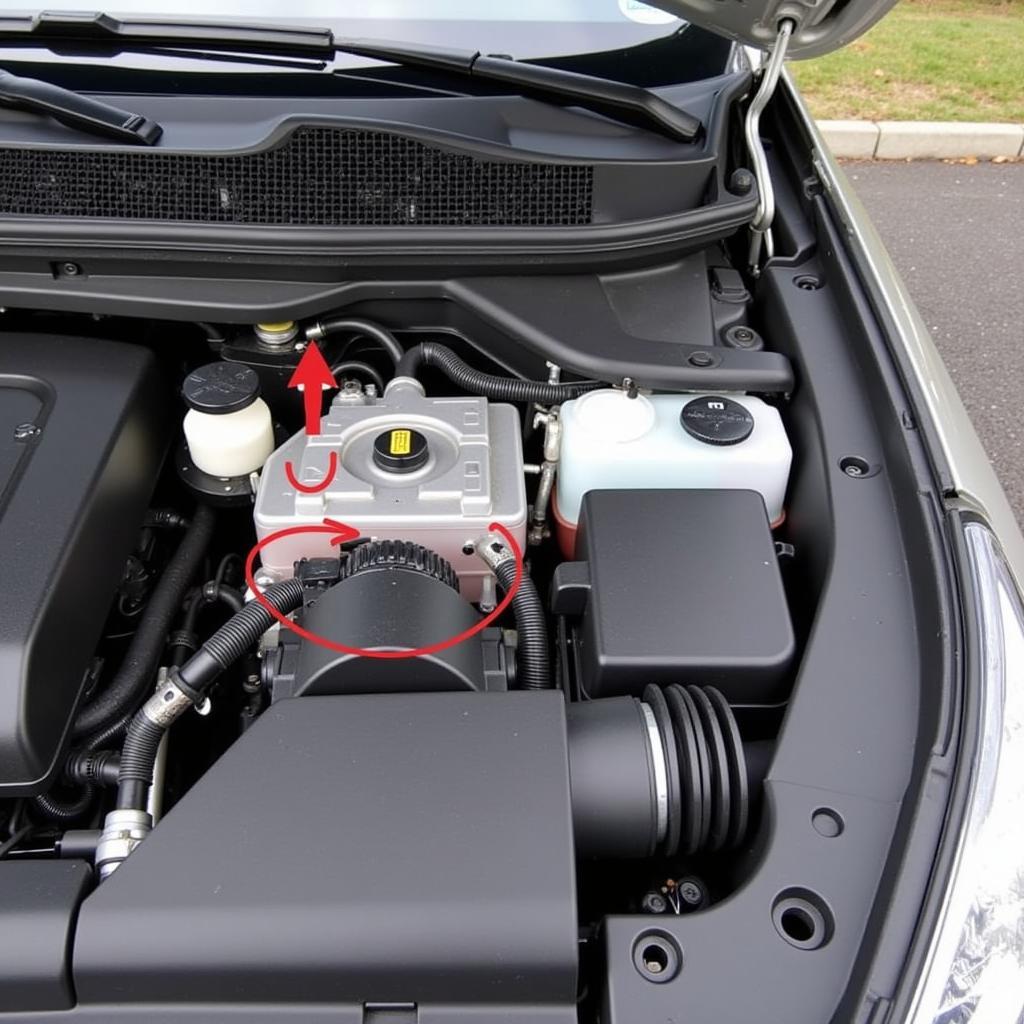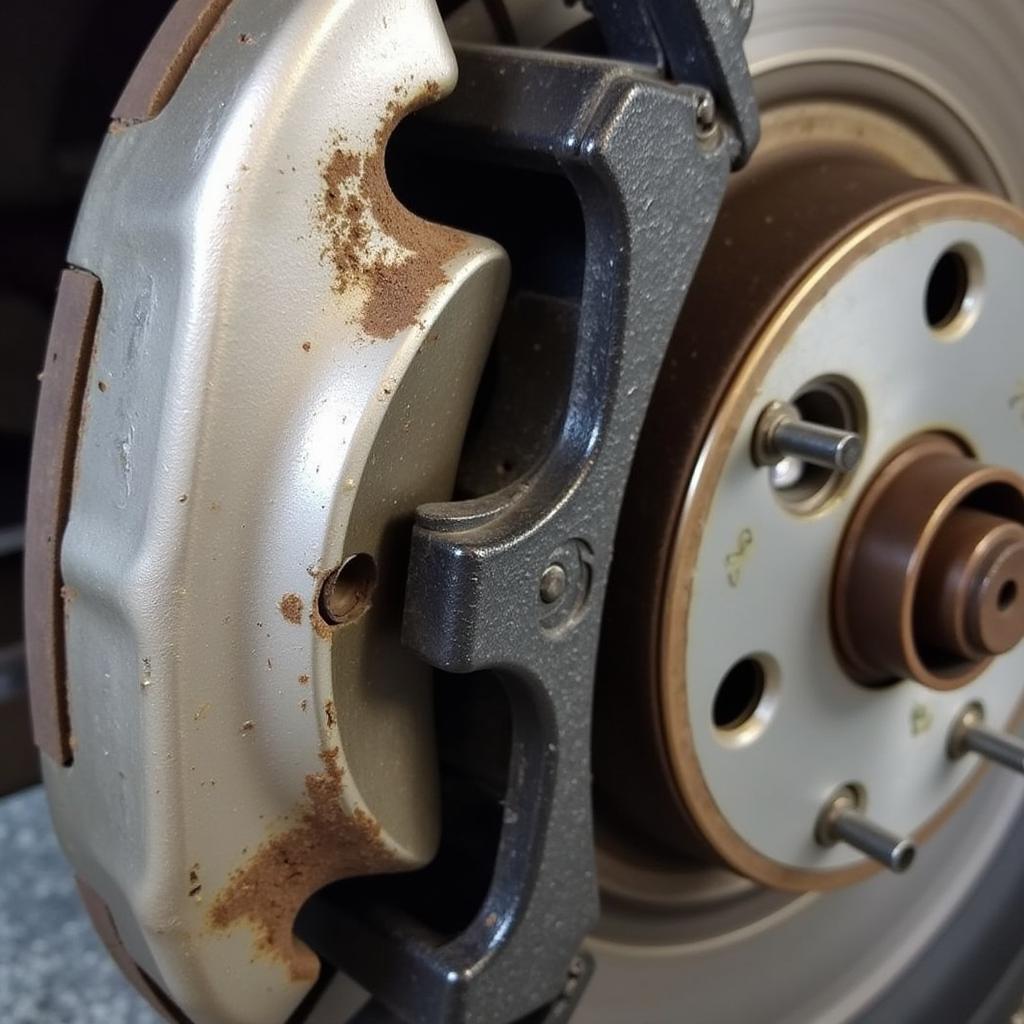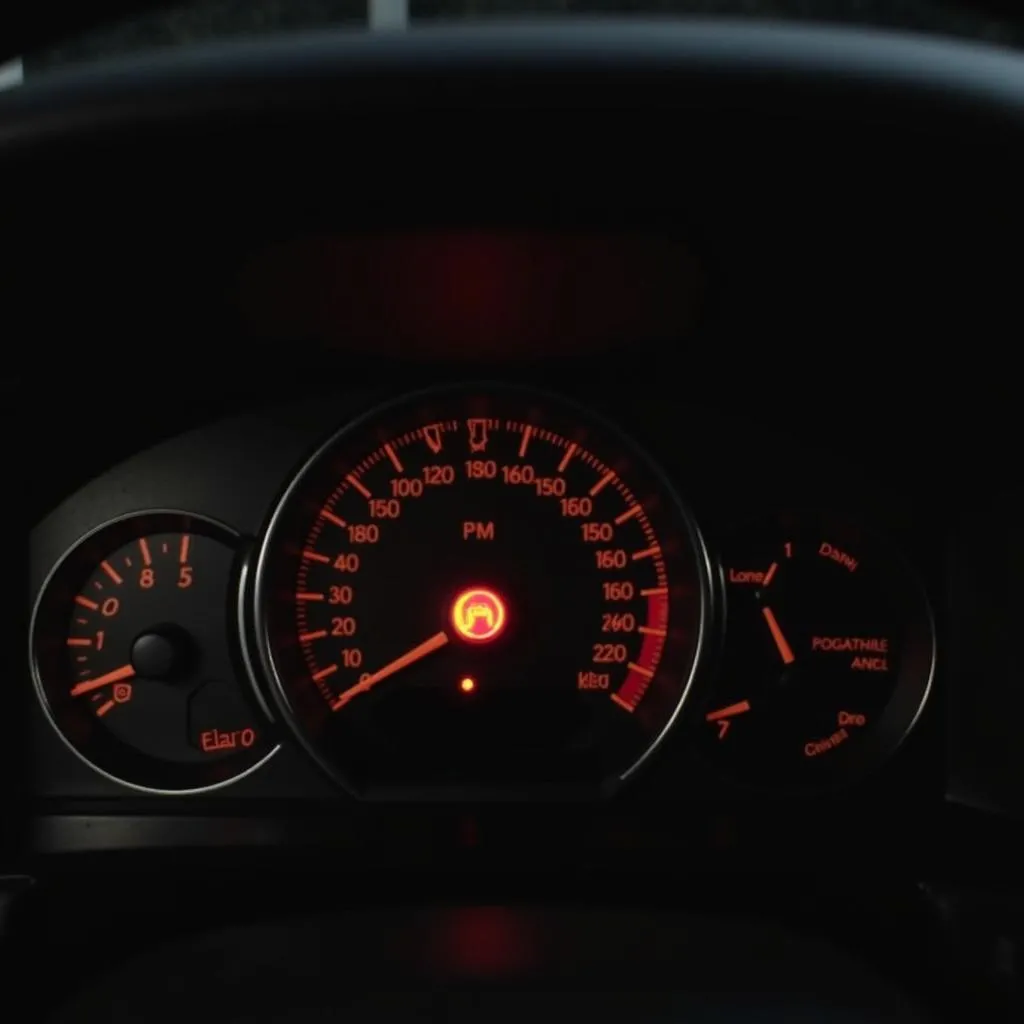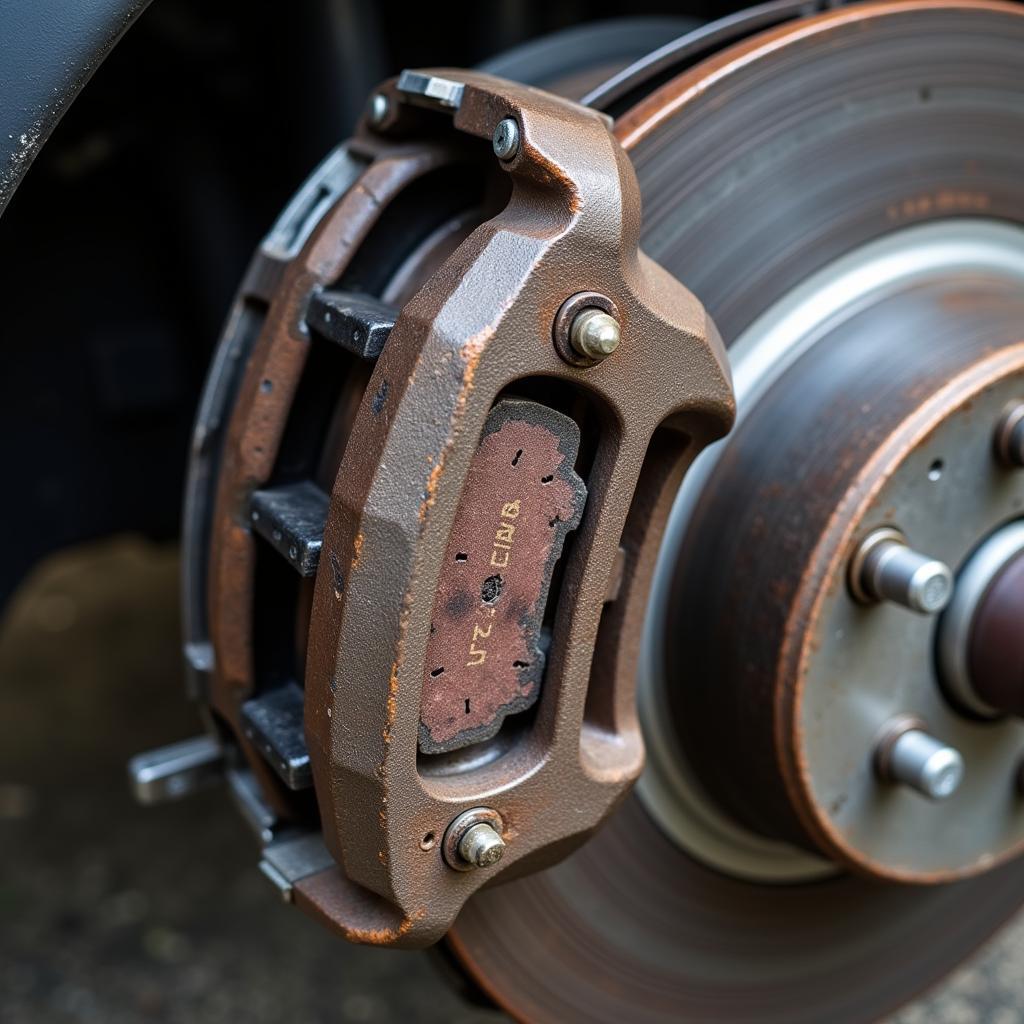The 2014 Kia Optima Hybrid is a popular choice for its fuel efficiency and sleek design. However, like any vehicle, it can experience issues. One common problem is the dreaded “check brake” warning. This article provides a comprehensive guide to troubleshooting and resolving the 2014 Kia Optima Hybrid check brake warning, offering expert insights and practical solutions for drivers.
The check brake warning light can illuminate for various reasons, ranging from simple issues like a low brake fluid level to more complex problems requiring professional diagnosis. Understanding the potential causes and knowing how to address them can save you time, money, and stress. This guide will explore the common causes of this warning light in your 2014 Kia Optima Hybrid and guide you through diagnostic steps and potential solutions. We will also cover preventative measures to help avoid future brake system issues.
Common Causes of the Check Brake Warning in a 2014 Kia Optima Hybrid
Several factors can trigger the check brake warning in your 2014 Kia Optima Hybrid. Identifying the root cause is crucial for effective troubleshooting. Here are some of the most frequent culprits:
- Low Brake Fluid: This is often the most straightforward cause. A leak in the brake lines or worn brake pads can lead to low brake fluid levels.
- Faulty Brake Sensor: Your Kia Optima Hybrid uses sensors to monitor various brake system components. A malfunctioning sensor can trigger the warning light even if there isn’t an actual problem.
- Worn Brake Pads: As brake pads wear down, they can trigger a sensor that activates the warning light. This is a normal part of brake pad wear and indicates they need replacement.
- ABS Issues: Problems with the Anti-lock Braking System (ABS), such as a faulty wheel speed sensor or a problem with the ABS module, can also trigger the check brake warning.
- Parking Brake Engaged: Sometimes, the simplest explanation is the correct one. If the parking brake is even slightly engaged, the warning light might illuminate.
Diagnosing the Check Brake Warning
Before rushing to a mechanic, there are some diagnostic steps you can perform yourself.
- Check the Parking Brake: Ensure the parking brake is fully released.
- Inspect Brake Fluid Level: Locate the brake fluid reservoir and check the fluid level. If it’s low, top it off with the recommended brake fluid type.
- Visually Inspect Brake Pads: If you’re comfortable doing so, check the brake pads for wear. If they appear thin, they likely need replacement.
 Checking the Brake Fluid Reservoir in a 2014 Kia Optima Hybrid
Checking the Brake Fluid Reservoir in a 2014 Kia Optima Hybrid
When to Seek Professional Help
If the simple checks don’t resolve the issue, it’s time to seek professional help. A qualified mechanic can perform a more thorough diagnosis using specialized diagnostic tools.
What can a mechanic do?
A mechanic can access the vehicle’s computer system to read diagnostic trouble codes (DTCs), which can pinpoint the specific problem area. They can also test the ABS system and other components to identify any malfunctions.
“Don’t ignore the check brake warning,” advises John Smith, a seasoned automotive technician with over 20 years of experience. “It’s a crucial safety system, and addressing the issue promptly can prevent more serious problems down the road.”
 Worn Brake Pads on a 2014 Kia Optima Hybrid
Worn Brake Pads on a 2014 Kia Optima Hybrid
Preventing Future Check Brake Warnings
While some brake issues are inevitable due to wear and tear, proactive maintenance can help minimize the frequency of check brake warnings. Regular brake inspections, timely brake pad replacements, and keeping the brake fluid at the correct level are essential preventative measures.
How often should I have my brakes inspected?
It’s recommended to have your brakes inspected at least once a year or every 12,000 miles.
“Regular maintenance is key to a healthy brake system,” says Jane Doe, a certified automotive instructor. “Just like any other part of your car, the brakes require attention to ensure they function optimally.”
Conclusion
The 2014 Kia Optima Hybrid check brake warning can be concerning, but understanding the potential causes and taking appropriate action can help resolve the issue efficiently. This guide provides valuable information for troubleshooting and preventing future brake problems, ensuring a safe and reliable driving experience. Remember, addressing brake issues promptly is crucial for your safety and the longevity of your vehicle. Don’t hesitate to consult a professional if you’re unsure about any aspect of brake system diagnosis or repair.
FAQ
- What should I do if my check brake light comes on while driving? Safely pull over and assess the situation. Check your parking brake and brake fluid level. If you’re unsure, contact a mechanic.
- How much does it cost to replace brake pads on a 2014 Kia Optima Hybrid? The cost varies depending on the type of brake pads and labor rates. Contact a local mechanic for a quote.
- Can I drive my car with the check brake light on? It’s not recommended. The warning light indicates a potential problem with your braking system, which could compromise your safety.
- How often should I change my brake fluid? Consult your owner’s manual for the recommended brake fluid change interval. Generally, it’s advisable to change it every 2-3 years.
- What is the difference between the check brake light and the ABS light? The check brake light indicates a general brake system issue, while the ABS light specifically refers to a problem with the Anti-lock Braking System.
- Can a low battery cause the check brake light to come on? In some cases, a very low battery voltage can cause various warning lights to illuminate, including the check brake light. However, this is less common than other causes.
- What is the importance of using the correct type of brake fluid? Using the wrong type of brake fluid can damage the brake system components and compromise braking performance. Always consult your owner’s manual for the recommended brake fluid type.


